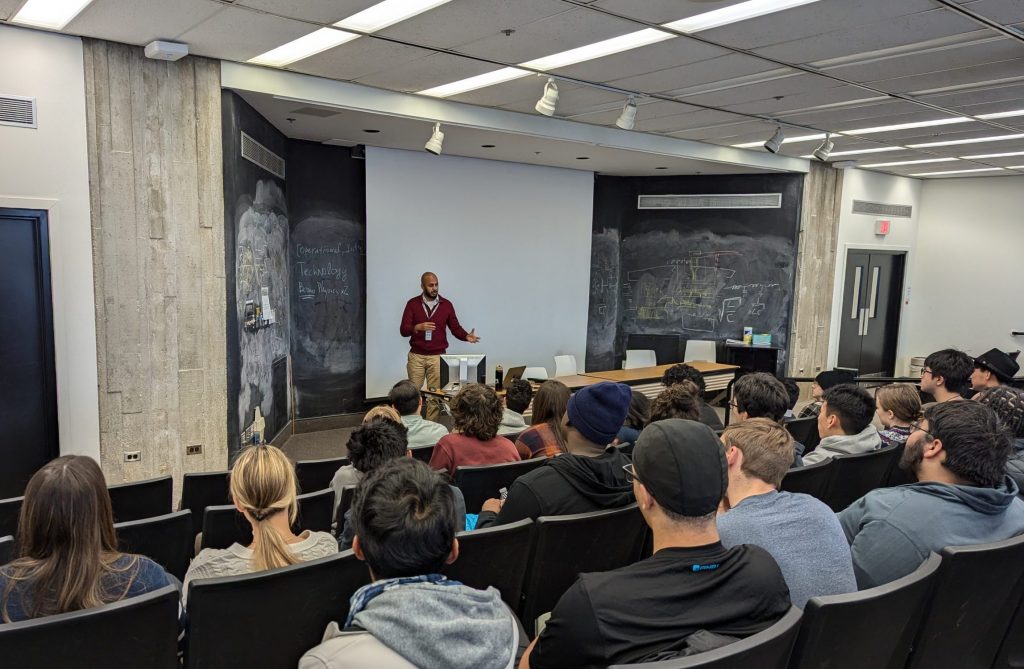Saturday Morning Physics (SMP) connects high school students to Fermilab science!
The SMP program’s purpose is to further the understanding and appreciation of modern physics among high school students. SMP is a free series of 11 lectures and tours given by Fermilab community. The lectures are aimed at high school students who have no previous scientific knowledge.

Spring 2026 session registration is open.
An announcement of the SMP program is made in August for the fall program and in December for the spring program.
Applications will be taken only for the coming academic year and will be granted as the number of registered students does not exceed the maximum number of students per session. Students must satisfy the eligibility requirements listed below.
Spring 2026 session begins on Saturday, January 24th and will run through Saturday, April 18th.
Spring 2026 will also include three off-site lectures for students; Saturday, February 21st will be held at the Northwestern University, February 28th will be held at Griffin Museum of Science and Industry, and Saturday, March 14th will be held at the University of Chicago. Student will need to make travel arrangements or plan to attend through the Zoom meeting.
Lectures are held 9 a.m.-noon Central Time. All lectures begin promptly at 9:00 a.m. We recommend that you be in your seat or join the Saturday Morning Physics Zoom meeting between 8:45–8:50 a.m. The lectures are two hours long, with a 10-minute break. Tours and Q&A sessions start at about 11:00 a.m., with everything wrapping up at around noon.
The program is open to high school students in public, private, or parochial schools. Home-schooled students with high school standing are also welcome. In-person attendance is encouraged, however a Zoom link is always provided to facilitate remote attendance. Students may attend in-person or remotely on any given week and are not required to commit to one or the other for every session.
It is helpful to have had a high school physics course and a couple of years of algebra before participating, but these are not required.
A unique e-mail address is required to complete the registration.
Nathan Saffold , Co-Director
Dr. Saffold is a Lederman Fellow at Fermilab, whose work focuses on the use of Skipper CCDs to study dark matter. He currently works on the SENSEI experiment searching for dark matter-electron interactions in an underground laboratory, and the DarkNESS mission aiming to deploy skipper-CCDs on a CubeSat. Dr. Saffold received his BA in Astrophysics from Williams College in 2014, and his PhD in Physics from Columbia University in 2021. At Columbia, he worked under Prof. Charles Hailey on the General Antiparticle Spectrometer (GAPS) experiment, a balloon-based indirect dark matter detection experiment.
Gray Putnam, Co-Director
Details
Dates (program date)
Jan 24, 2026— Apr 18, 2026
Time
9:00 a.m. — 12:00 p.m.Grades
9-12Fee
$Free RegisterContact Information
Saturday Morning Physics team at saturdaymorningphysics@fnal.gov
